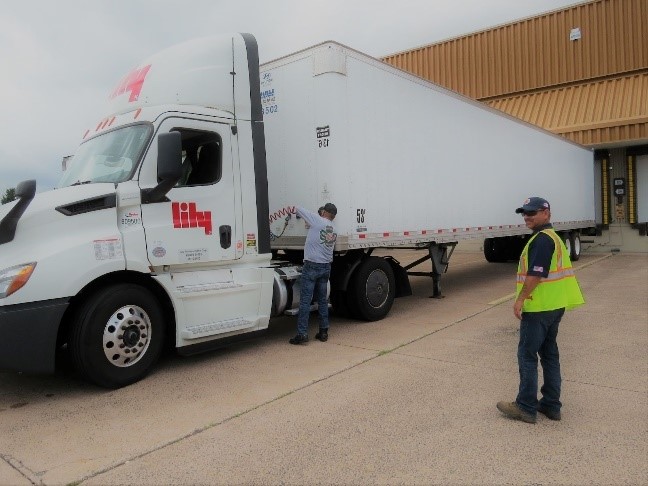Setting a new year resolution is always the easy part. Sticking to it is the real challenge. Statistics show that it takes 21 days to form a habit. If you can get yourself to perform your goal for 21 days, you’re golden! But how do I stick to my goal for 21 days?
Set realistic, small goals
Don’t set yourself to such a high standard where you go into it feeling like you won’t be successful. The goal here is long-term change. A lot of people will fail at their new year resolutions because they went on too strong in the beginning and began to feel it was too much to handle. For example, if your goal is to run a marathon, don’t start running every single day. You will burn yourself out. Start out slow at jogging a couple days a week. Slowly increase the running overtime and you will begin to see a huge improvement.
Get support
Hold yourself accountable with the buddy system! Explain your goals to a friend or family member, maybe they have similar goals as well. You can hold each other accountable and stay motivated together. That way you will always have backup support if you begin to feel discouraged. Make sure to talk through your thoughts and concerns together and set a plan of how you two are going to get through it!
Keep working on your goals
By March, many people have lost that initial spark of motivation. Keep that spark alive by continuing your goals even if you have faced some setbacks. Keep positive by setting small goals, and creating new ones if you can’t seem to jump the hurdle on one. Re-evaluate your goals if needed and don’t give up!
WHAT SHOULD MY RESOLUTIONS BE?
Now that you know how to set goals and stick to it, let’s ring in the new year with a fresh set of goals and resolutions! 2022 is giving you the opportunity to turn over a new leaf and reset. We all know the trucking industry can be tough, and you probably have a lot on your plate. New year resolutions may be the last thing on your mind, but we are here to give you some goals that you can incorporate to your everyday trucking life! Here are some new year resolutions ideas you can start with:
Become an elite driver in 2022
In 2022, take it to the next level and become an elite driver! This means no accidents for the whole year. If you are already elite, awesome! Continue that pattern into 2022. Not only will you feel accomplished, Lily Transportation will enroll you into our Elite Driver Program and you will receive an annual bonus which increases each year you are elite, as well as elite gear. Talk about motivation!

Stay hydrated and eat clean
We all know that truck stops are often limited to unhealthier options. But there are usually always fruits available. Make your health a priority and switch out that cookie for a piece of fruit once or twice a week. It is important when trying to eat healthier to slowly incorporate healthy changes to your diet. Quitting sugar, or carbs cold turkey can often result to binge eating or a failed diet. It is also highly important to stay hydrated. Try purchasing a water jug that contains all the water you need for the day and set goals to finish half of it 4 hours into your route. Or make it a priority to switch that soda to a water a few times a week. Small changes lead to big results!
Prioritize safety
Safety has always been the #1 priority, especially in the trucking industry. Take some time this January to really look at your safety procedures and truck inspection checklist. Are they as thorough as possible? If you aren’t already doing truck inspections before every trip, start a new habit of putting safety first. Contrary to popular belief, drugs and alcohol abuse are not the highest cause of truck accidents. It is mechanical issues often in tires and brakes. We cannot emphasize enough the importance of pre and post trip inspection!

Make time for your friends and family
Being a truck driver is often associated with having no time to spend with family due to traveling for weeks at a time- make them be wrong! Family should be your #1 priority. Take time out of each day to stop and call or facetime your loved ones and let them know how your day has been. It is important for your own mental to express how things are going on the road, especially if you drive solo. It can get lonely! Plan something nice to do with your family or friends so that you will have something to look forward to. This will help you get through your time the road.
Exercise at least 30 minutes each day
Truckers often neglect exercising due to lack of time or access to a gym. Don’t make that excuse this year! Learn to adapt to your environment and work with what you got. For example- buy a couple pairs of dumbbells, do bodyweight exercises, or start skipping, running, or walking. Any form of exercise is better than no exercise. Take those few minutes at a rest stop and get your exercise in. Getting your heart rate up once a day is so important and beneficial to your overall health! This will not only benefit your health, but exercise also releases endorphins in your brain causing you to be in a better mood, and feel more energized.
Overall, try to head into 2022 with a fresh mind. Think positively, mindset is everything! If you are feeling down about anything, try to focus on the positive by thinking of 1-3 things you’re grateful for, even if it seems impossible. Think of all your years to come and remember that if you don’t start implementing your goals now, when will you? If you start now, you will be so glad one year from now. Remember to keep your goals realistic and re-evaluate if needed! Good luck truckers and Happy New Year!












